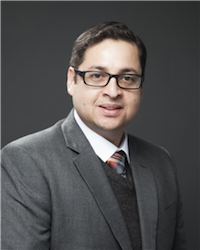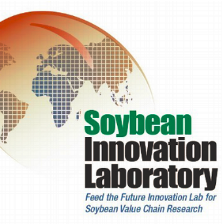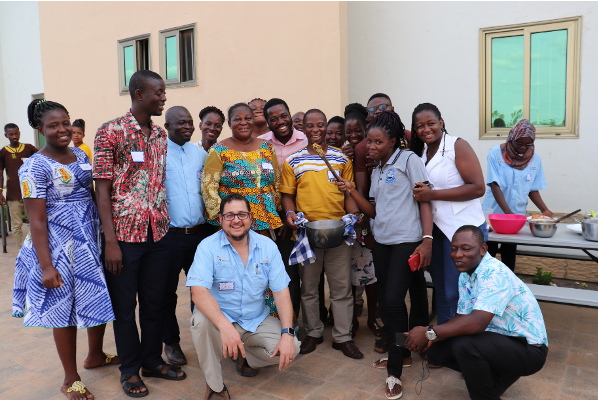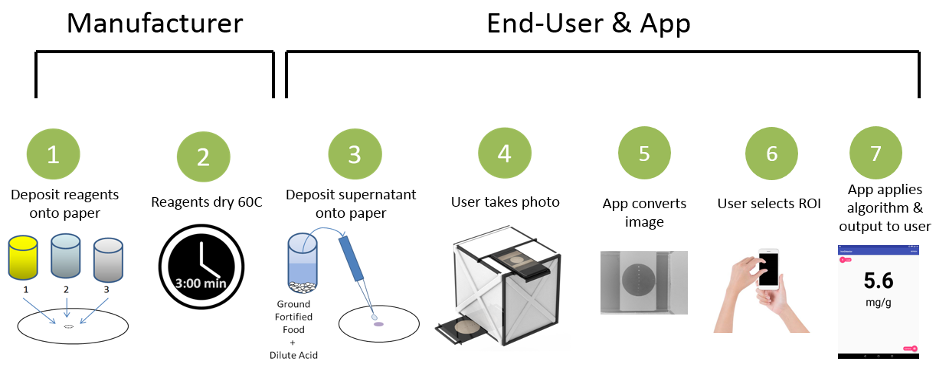 Please give a warm welcome to Dr. Juan Andrade Laborde, Associate Professor of Global Nutrition in the Food Science and Human Nutrition department at UF and an exciting addition to our Discover FSHN Series. He joined the department in August 2020 and is already making his mark in the fields of global nutrition and human development. Read on to learn about his path to global nutrition, his latest projects designed to serve impoverished populations, and his thoughts on one of the greatest threats to the healthcare system.
Please give a warm welcome to Dr. Juan Andrade Laborde, Associate Professor of Global Nutrition in the Food Science and Human Nutrition department at UF and an exciting addition to our Discover FSHN Series. He joined the department in August 2020 and is already making his mark in the fields of global nutrition and human development. Read on to learn about his path to global nutrition, his latest projects designed to serve impoverished populations, and his thoughts on one of the greatest threats to the healthcare system.
Tell me about how you became interested in global nutrition. When did you first begin studying this area, and what path did you take to get to UF?
Early Work in Rural Development
My interest in human development began when I rotated through a rural development module at my alma mater, Zamorano University in Honduras. This institute is one of the best agricultural universities in Latin America, and it is where I learned a unique love and respect for agriculture. As I am originally from Ecuador, I studied abroad for four years.
In the rural development module, we often met with and surveyed rural communities to understand farming needs, to look into the techniques farmers implemented for agriculture, how they planted their corn and beans, and where they could find funds to finance these activities. While completing these surveys, we enjoyed staple dishes in Honduran homes, such as tortillas and beans (both of which have never tasted the same since). I sensed this pride of accomplishment from the women who prepared these simple dishes for us. Though families were poor and food insecure, they gave us warm welcomes in their homes. They offered food that they did not have for their own families. Poverty did not undermine their hospitality! Human nutrition was not part of my training in those early years, but these experiences sparked many thoughts on how we can better support these families.
Pivoting to Human Nutrition
I started to learn more about the value of nutrition and food science to feed the world when I did an internship in the Bean/Cowpea & Dry Grain Pulses CRSP at Purdue University. This USAID-funded program, now called Innovation Labs, concentrates on low-income countries, especially in Sub-Saharan Africa and South Asia. My mentor, Prof. Suzanne Nielsen, was the lead PI at Purdue. Looking back, I never thought in my wildest dreams that one day I would be collaborating as a faculty member in the US with one of these Innovation Labs, let alone a lead PI for a team.
I argue [that nutrition transition] is the one threat to humanity that will break healthcare systems in the near future if we don’t address it today.
While at Purdue, I obtained a doctoral degree in human nutrition under the mentorship of Prof. John Burgess, with a concentration in biochemical nutrition. I worked with vitamin E and selenium, two critical micronutrient antioxidants, and I studied how plant bioactives affect oxidative stress pathways. After moving to the University of Illinois at Urbana-Champaign, I worked as a postdoc on plant bioactives and their effects on breast cancer in animal models with Prof. William Helferich. At the same time, I began supporting programs addressing food and nutrition security. As a result of this interest, I joined the faculty as an assistant professor.
Path to UF
During my early years as a professor, my focus was on delivery technologies that are more effective in addressing micronutrient deficiencies as well as innovative tools to measure nutrients in foods and in the body. I also started this area to develop and improve products used in food assistance programs. Later, I joined the USAID Soybean Innovation Lab as the nutrition lead, and now I am glad to bring this expertise and network to the UF community.
At UF, I am very excited to work with faculty in CALS, IFAS, and beyond. I joined the USAID’s Livestock Innovation Lab and the Food Systems Institute, and I look forward to many fruitful collaborations.
Would you share some of the recent projects you are working on?
 (1) USAID Soybean Innovation Lab. This research and development project focuses on Sub-Saharan Africa. As the lead PI for human nutrition, my aim has been improving the utilization of soybeans for human nutrition. We have three focal areas. 1) soy utilization for early child nutrition, 2) soy utilization for institutional feeding, and 3) advancing technical capacities of food agro-processors. In this project, we fulfill UF’s land-grant mission as we implement research (in the US and abroad), teaching (grad/undergrad student training) and extension (training of agents, volunteers) activities to improve livelihoods among a diverse population. We conduct research with peers in Ghana, Kenya, Uganda, and Malawi.
(1) USAID Soybean Innovation Lab. This research and development project focuses on Sub-Saharan Africa. As the lead PI for human nutrition, my aim has been improving the utilization of soybeans for human nutrition. We have three focal areas. 1) soy utilization for early child nutrition, 2) soy utilization for institutional feeding, and 3) advancing technical capacities of food agro-processors. In this project, we fulfill UF’s land-grant mission as we implement research (in the US and abroad), teaching (grad/undergrad student training) and extension (training of agents, volunteers) activities to improve livelihoods among a diverse population. We conduct research with peers in Ghana, Kenya, Uganda, and Malawi.

(2) Nutrient sensors for food fortification programs in low- and middle-income countries (LMICs). Our team focuses on the limited abilities of the food industry and government in LMICs to monitor food fortification programs. Without diagnostics and monitoring systems in place, evaluating these programs is difficult. We have developed a low-cost, paper-based, and smartphone-assisted sensor for the determination of iron in fortified staple flours. Currently, we are optimizing this sensor and improving its ability to measure zinc.

(3) Improving the functionality of foods used in food assistance and emergency relief programs. Ready-to-use therapeutic and supplementary foods (RUTF/RUSF) are used to address nutrient/energy gaps in impoverished populations, especially those in protracted emergencies or famines. These foods are energy and nutrient dense and are very effective to address acute malnutrition among children. We argue that these foods can be delivery vehicles for bioactives beyond nutrients. Currently, we are evaluating the properties of plant essential oils as antiparasitic agents to address the widespread burden of parasites normally present in vulnerable populations. We’ve studied the effects of essential oils from oregano, thyme, and hops on Cryptosporidium parvum, a water/food-borne pathogen and one of the leading causes of diarrheal diseases in low-income settings.

(4) Nanotechnology applications to improve delivery and absorption of nutrients. Some micronutrients are not as easy to incorporate as ingredients in food formulations. They can react with other food components resulting in organoleptic changes that reduce the consumption of the intended food. Some vitamins are labile and get destroyed during processing and others have limited absorption in the gut. We have worked with food proteins and methods to reduce their particle size in the nano-range in order to enhance their dispersibility in food products and improve their bioavailability. We are currently evaluating the ability of plant- and animal-sourced protein nanofibrils and nano aggregates to deliver iron, zinc, carotenoids, and fat-soluble vitamins.

Would you tell me about the classes you teach?
I currently teach Fundamentals of Human Nutrition (HUN2201) to about 300 students online. I am planning a Global Nutrition course for undergraduates and graduate students next year.
What do you believe is the most important fact(s) the general public should know about global nutrition?
Nutrition science is the same in every country. Regardless of the life stage, we need the same nutrients and, for the most part, we obtain them from foods. In the more affluent countries, we can choose the sources of nutrients, and we spend less than 10% of our income to obtain them. Poverty is the basic cause of undernutrition and limits the effectiveness and resilience of food systems. Global nutrition is about strengthening food systems in low-income countries to better address the nutritional needs and gaps of all population groups.
In affluent societies, and more importantly in those families and individuals transitioning away from poverty, increased income, disinformation, and our mindless appetite for savory/sweet foods are also determinants of overweight and obesity, which are associated with chronic disease. Thus, malnutrition due to too few nutrients or too many calories is a manifestation of ineffective food systems, food insecurity, and poor choices. This double burden of malnutrition associated with the shift in higher dietary intake and lower energy expenditure that coincides with economic, demographic, and epidemiological changes has been named nutrition transition. I argue it is the one threat to humanity that will break healthcare systems in the near future if we don’t address it today.
What do you like to do in your free time?
I have fun with my kids. Though not an expert, I enjoy playing musical instruments. Whenever possible, I binge watch sci-fi shows and re-runs of many family comedies. With COVID, these old series have been our white noise to get through these tough days.
Is there anything else you would like to add?
We should care about our own nutrition. When in doubt, we should seek advice on nutrition from dietitians, nutritionists, and health practitioners. UF has a fantastic extension program, and you can find food and nutrition experts in every county.
Note: Images in this post were taken prior to national guidelines of face coverings and social distancing.
Interested in learning more about the field of food science? Read more here and here!
P.S. The Discover FSHN Series highlights the unique experiences of UF’s Food Science and Human Nutrition students, faculty, and staff. Want to read more about the amazing work going on in the FSHN department? See our previous student, faculty, and staff features below:
Undergraduate Students:
Shannon Mai, Dietetics
Alex Colon, Dietetics and Jenny Duong, Food Science
Jackie Shannon, Nutritional Sciences
Jennifer Jordan, Food Science
Graduate Students:
Savanna Curtis, Food Science
Carley Rusch and Matthew Beke, Nutritional Sciences
Alexa Hosey, Dietetics (MS/DI)
Faculty:
Dr. Naim Montazeri, Food Science/Food Virology
Dr. Jeanette Andrade, Dietetics
Dr. Zhiyong Cheng, Nutritional Sciences
Staff:
Sharyn Passeretti, Lab Specialist
P.P.S. Learn more about FSHN’s renowned programs below!
Undergraduate Programs:
Dietetics
Food Science
Nutritional Sciences
Graduate Programs:
M.S. Dietetic Internship Program
M.S. Food Science and Human Nutrition
Ph.D. Food Science
Ph.D. Nutritional Sciences
 0
0
